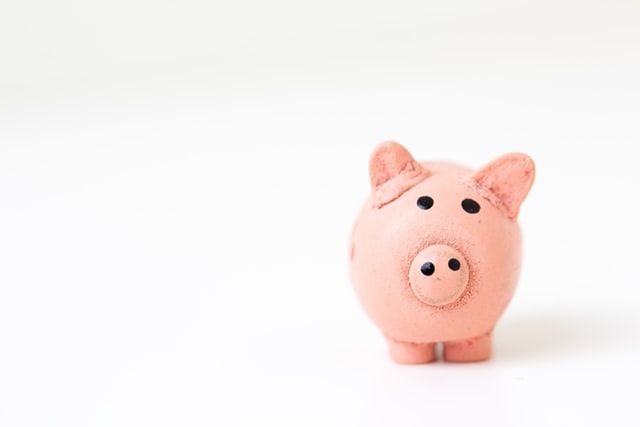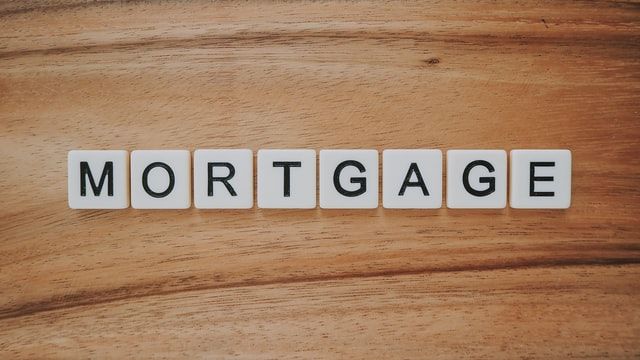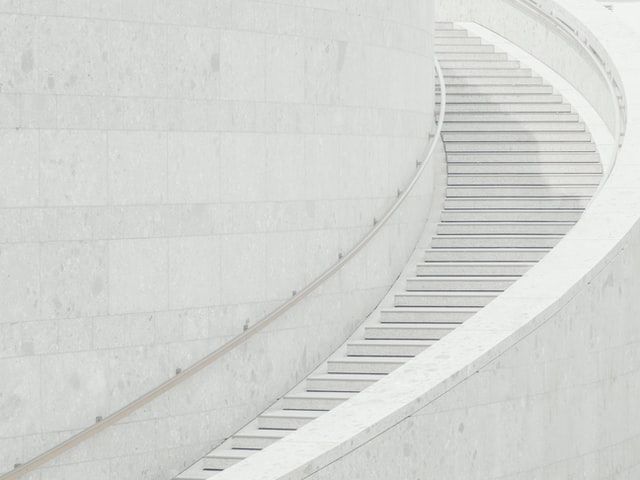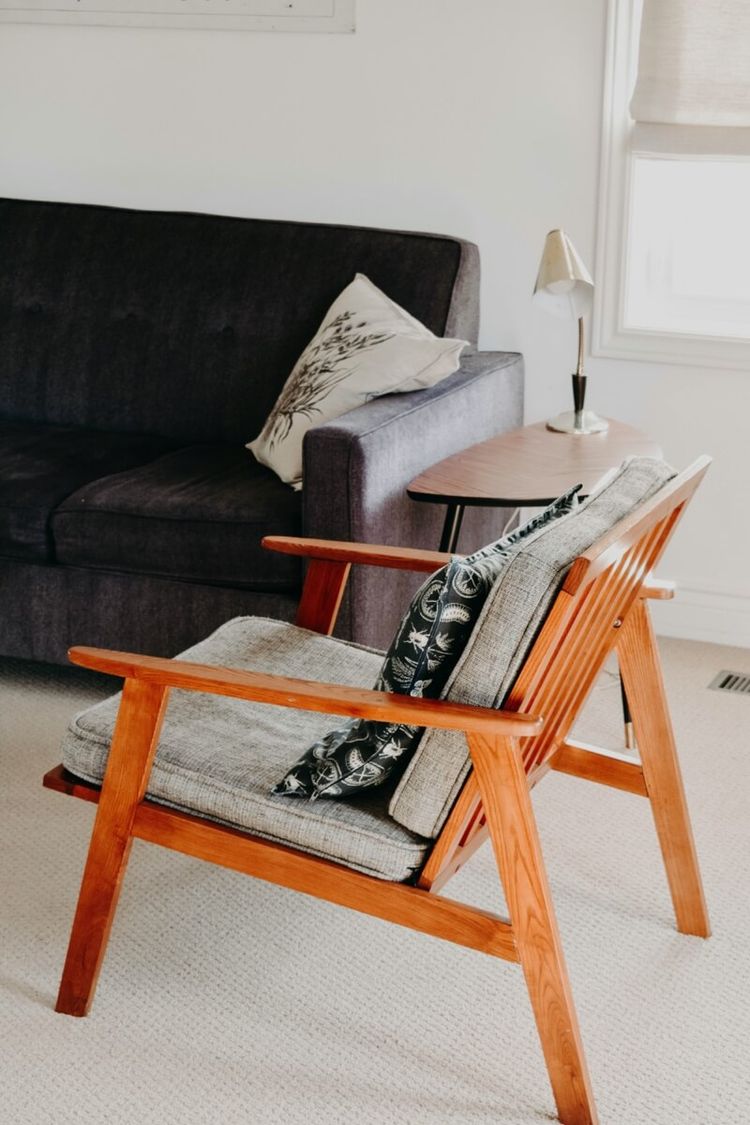The cost of Shared Ownership: Deposit, Mortgage & other fees

For some, investing in a Shared Ownership property can prove to be the solution when looking for help to buy a home. The Shared Ownership scheme is designed to help you get onto the property ladder if you can’t get the home you want with a traditional mortgage. It’s also an option open to you if you’ve previously been a homeowner, but no longer own your property.
If you're over the age of 18, with a household income of less than £80,000 per year (or £90,000 in London), then you could be eligible for Shared Ownership. However, if you’re considering the Shared Ownership scheme, you’ll need to think about the costs involved. To not do so could turn your Shared Ownership plans into an unexpected financial struggle.
And of course Shared Ownership is usually only available for newly built properties, or resales that a current Shared Ownership owner is looking to sell on.
As with any property purchase, you need to be sure that the Shared Ownership scheme is appropriate for you. In this article, we discuss the costs associated with buying and owning a Shared Ownership home, and how you can be prepared to meet them.
You should be aware that each Shared Ownership scheme has its own specific rules so you should check the rules with the Shared Ownership provider. We also suggest getting a second opinion from an independent, regulated, third-party, financial advisor.
Providing the deposit
When you apply for any mortgage, it’s likely that you'll need to provide a deposit. Shared Ownership properties are no exception. Usually, you'll buy an equity share of anywhere between 25% and 75% of the property and then pay rent on the remaining share.
Under Shared Ownership, the general rule is that you pay a deposit only on the share of the property that you’re purchasing. This is different to a standard residential mortgage, where you’re usually required to pay a deposit on the full purchase price.
As an example; if you’re purchasing a 25% share of your home and the property is worth £300,000, the value of your share will be £75,000. In the case of Shared Ownership, you'll usually be required to provide a minimum 5% deposit of your £75,000 share, depending on which Housing Association you’re dealing with. This means you’ll need a deposit of £3,750 and then will need to take out a mortgage for £71,250 to buy your £75,000 share. For first time buyers, or those struggling to buy a home, the small deposit required for a share in the property could prove a big help to buy their home.
The potential costs of your mortgage

The arrangement fee
It’s likely that your lender will charge an arrangement fee. Be sure to thoroughly check for fees like this and how much they are. Sometimes, mortgage lenders have been known to increase their arrangement fee in order to make the interest rate appear lower, but always seek advice from an independent and professional mortgage advisor before signing on the dotted line. You need to be in the know about how the arrangement fee could potentially affect your monthly repayment and what you can afford to pay based on your household income.
There is sometimes the option to pay the arrangement fee upfront depending on who your lender is. However, you need to consider the possibility that if the Shared Ownership purchase falls through, this may not be refundable. On the other hand, if you choose to add the fee to the mortgage, you’ll be paying the interest on it for the duration of the loan term.
The booking fee
Some lenders charge an additional booking fee to secure your mortgage. On average, the fee is in the region of £100-£200, but this is dependent on the lender you’re using. It’s paid upfront, so if your purchase doesn’t go ahead, it’s money that you may not see again.
The valuation fee
The valuation fee is charged by the lender for a valuation survey to ensure that the property you're buying is worth what you’re paying for it on the open market (be aware that this is just a valuation survey to determine the value of the property and not a structural survey). If there's a difference, you should consider whether to go ahead with the purchase or if you should try to renegotiate the price. The lender is trying to ensure that if you fall behind on your payments and they need to repossess your home, they’ll be able to sell it on for a price that’s reasonable and covers the amount of the mortgage they have lent you.
The valuation fee is usually around £250. You might find that your lender will cover the fee for you, but it’s best to be covered in case it’s a sum that you'll have to meet yourself out of your household income.
The mortgage broker
You might decide to enlist the help of a mortgage broker who acts as a ‘go between’ between you and your mortgage provider. Part of their role is to search the market for the most appropriate mortgage deals for you. They'll take a look at your financial situation and your household income (amongst other things) in order to assess your affordability. You'll need to show that meeting a monthly mortgage repayment is something that you can do and that your credit rating is in good shape.
Some brokers don’t charge you a fee for their services. This is because they work on commission from the lender. Others though, charge a fee to cover the work they undertake. The fees brokers charge vary. Some use fixed fees, whilst others charge a percentage of the purchase price.
Legal costs - solicitors and conveyancers

You'll need a licensed solicitor or conveyancer to take you through all the legal work when it comes to buying your Shared Ownership home. Their fees are usually on a fixed price basis but you will need to check whether this is the case as costs may vary. The fees usually vary between £500-£1,500, but this is by no means a definitive guide.
They will carry out a number of tasks relating to your house purchase. They’ll organise for the property searches to be undertaken and organise exchange of contracts and completion. They'll also deal with the transfer of ownership and ensure that the property is properly registered. When the property is Shared Ownership, they should also conduct a thorough inspection of the lease, bringing to your attention any restrictive covenants or other restrictions that you need to be aware of.
If you’re taking out a mortgage, you should be aware that your solicitor or conveyancer will normally act for your lender as well as you. In these cases, you’re likely to require a solicitor or conveyancer who is on an approved list of practitioners who are qualified to undertake the work.
Costs associated with a leasehold property
Shared Ownership properties are always leasehold. There may be opportunities down the line to purchase the freehold from the Housing Association, but this will depend on your Housing Association. There are additional costs associated with leasehold properties that you should be aware of, as they'll need to be factored into your monthly household income and expenditure.
Service charge
With a Shared Ownership property, you may be required to pay a service charge to the Housing Association. The service charge covers the upkeep and repair of common areas, buildings insurance and maintenance of the grounds. There may be other things that the service charge covers too, e.g. it can be used to maintain and repair lifts and lighting, this list is by no means exhaustive.
Ensure that you know how much the service charge will be each month. Be aware also that the Housing Association can, subject to the terms of the lease, increase the service charge at any time. So it would be wise to keep an amount of money ring fenced to cover any increases to the service charge and to limit the impact on your household income
Admin fees
Some Housing Associations may also charge an admin fee to cover the services they provide, so it’s worth checking to see if this applies with your Housing Association
Ground rent
Due to the fact that all Shared Ownership properties are leasehold, as well as the service charges, you may be required to pay a yearly ground rent. Like the service charge, the amount you’ll pay will vary. It depends on where you live, the type of property you live in and the terms contained within your lease.
It’s vital that you instruct your solicitor or conveyancer to examine your lease in detail ahead of your purchase being finalised. Some leases contain what’s known as a ground rent doubling clause. This means that the amount of ground rent charged will double every few years - in some cases, ground rent prices have risen to unmanageable levels.
If you’re planning to make a mortgage application, ground rent doubling clauses are something you need to look out for. This is because many lenders are apprehensive about approving mortgages for properties with such clauses and therefore may not be willing to lend. In addition, you may also find it more difficult to sell your property in the future.
When you buy a Shared Ownership property, you may find that your legal fees are a little higher than those in a standard purchase. This is because some solicitors charge more for the additional work they undertake in respect of checking the lease and the clauses and terms within it.
Stamp Duty
Stamp Duty is another of the costs you’ll need to factor in when purchasing your Shared Ownership property.
When it comes to Stamp Duty, you’ve got a decision to make. You could make a one-off payment, the amount of which will be based on the value of the property as a whole. If you decide to do this, this means that you won’t have to pay any further Stamp Duty if you decide to increase the share you own in the property later down the line. So, when you're buying a home, give some consideration to whether you think the property is likely to rise in value. If you think that this is the case, making a one-off payment could be the way to go.
Alternatively, you can choose to pay the Stamp Duty in stages. This means that you’d pay Stamp duty on your initial purchase share and then pay again in the event that you choose to increase your share in the property. As a general rule, if you don’t pay the Stamp Duty upfront, then you won’t have to pay it if you own less than 80% of your home.
It’s not easy to calculate Stamp Duty, or to predict which method of payment is right for you. As such, it’s advisable to seek advice from an independent professional in this regard.
First-time buyers exemption
If you’re a first-time buyer, you will benefit from the first-time buyers relief currently available on Stamp Duty. As part of the 2018 Budget, the Government stated that if your Shared Ownership property is worth up to £500,000, then you do not need to pay any Stamp Duty on the first £300,000. If this applies to you, and you paid Stamp Duty on your property after November 22 2017, then you may be eligible for a refund.
Important! The Government has temporarily reduced Stamp Duty rates for a fixed period between the 8th of July 2020 and 31st of March 2021. The examples in this article refer to the existing rates, that will apply again from the 1st April 2021. For more information on the temporarily reduced Stamp Duty rates, click here.
Staircasing - increasing the share you own

It might be that you intend to increase your share, all the way up to 100% ownership. You can obtain a higher share through a process known as staircasing.
Different Housing Associations have different rules when it comes to your right to buy an additional share, so it’s always best to keep them informed of your intentions to purchase more and to be aware of any rules and restrictions they’ve got in place. Some of the schemes don’t allow you to increase your share all the way to 100% ownership, so that’s perhaps the first thing you should check if this is in your future plans. Other restrictions include:
- Only being able to increase your share in specific increments.
- A limit on the amount of times that you’re permitted to increase your share.
If you think that increasing the share of the property you own is something you’ll pursue, then it would be a good idea to have a savings plan so that you can cover the amount of the additional share you wish to buy. How much you'll pay for each future share is dependent on how much your property is worth at the time you intend to buy. If your property has increased in value, then so will the price of that additional share.
Other staircasing costs
If you choose to increase your ownership, it's likely that you'll face other costs. It’s estimated that doing so can add up to £2,000 and that’s in addition to the costs of the additional share of the property itself.
Some examples of the costs that you might incur when increasing your share are:
- A property valuation to determine the price of the additional amount you want to buy.
- Additional solicitor and conveyancer fees.
- Mortgage fees. These might apply if you need to make an application for a new mortgage to purchase more.
- Admin fees from the Housing Association
Having said all that, there is an upside. As you only pay rent on the share you don't own, if you increase your share then the amount of rent you pay to the Housing Association on the remainder should reduce. This may result in your monthly payments being lower overall.
Moving costs

Whether opting for a standard mortgage or diving into Shared Ownership, moving home can be an expensive business. If you’re a first time buyer, you may need to cover the cost of furnishing your home. This can really add up, particularly if you need to purchase white goods and electrical items. If you already own these items, you might need to pay for the cost of storage until you’re settled in your new home.
In addition, you may need to hire someone to help with removals.
You may also find that your Council Tax payments increase depending on where you move to and the size of the property you purchase.
Have a buffer
Moving home, under any circumstances, is going to involve a level of expenditure. It’s always a good idea to keep a financial ‘buffer’ to one side, a pot that you can dip into as and when unexpected costs come to light.
You may find that the service charges or ground rent charged by your Housing Association increase. You'll also need to factor in the possibility that the home you’ve purchased is in need of some minor TLC or a large maintenance project. Either way, all of these things cost money that’s in addition to your monthly costs of owning a home.
When it comes to buying a Shared Ownership home, you must consider the costs involved, whether you plan to increase the share you own or not. As with any house purchase, if you don’t do your research, read all of the available information and have a solid financial plan, you’ll find that costs can spiral out of control very quickly. Ground rent and service charges, the deposit and the cost of moving - it all adds up. If this happens, there are lots of places you can go for free advice. For example Shelter or National Debtline both have a website and advice lines to help people in this situation who are unable to keep up the repayments on their homes. However, it’s best to try and avoid this situation as far as you can.
And don’t forget; once the initial cost outlay is done and dusted, you’ll need to be able to manage month to month. And ideally, have something left over with which you can do as you please. Your rent and your mortgage payments will need to be paid for the total length of the loan. This needs to be manageable, not least of all to ensure that after you've picked up your key, you get complete enjoyment and satisfaction out of the home you call your own.
About Wayhome
Wayhome is the Gradual Homeownership option that helps aspiring homeowners take their first steps towards ownership without taking a mortgage. A simple, yet revolutionary idea: if you can afford to rent, you can afford to gradually buy. Start with as little as a 5% deposit, and rent the part of the home that you don’t own. Buy more as and when you can afford to do so.


